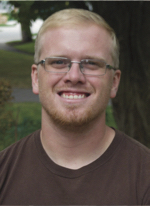By Marla Harvey
 Within two weeks of my RARE position in Hood River County, I was already in over my head.
Within two weeks of my RARE position in Hood River County, I was already in over my head.
I was here to work on developing an “energy plan” for the county and yet 15 minutes into my first planning meeting, I was put in charge of organizing “Hood River County’s Energy Future” a symposium celebrating the county’s many energy-related accomplishments. It would be a half-day affair, with two panels, two workshops, an audience full of eager participants, and, oh yeah, it had to happen in a month.
Hood River County’s Energy Future would kick off the energy planning process, and offer a way to inspire community volunteers we hoped to engage. In practice, it couldn’t have been a better introduction into my job and the community.
Not only did I get a crash course in event planning, a skill I will use moving forward, but I met numerous key players in Hood River County’s energy-related network. Right off the bat, I had a reason to meet with the many brilliant community and state partners who would be critical to my work. I was supported and encouraged on all sides and despite a few flying by the seat of my pants moments, the event was successful. We filled the local Fire Station with a standing-room-only crowd, and I gained a confidence I couldn’t have expected so early.
In the weeks leading up to the event, there was an article that made the front page of the paper with my face positioned next to the title, Hood River County’s Energy Future. When it was my turn to speak at the event, I made the remark, “you didn’t know your hopes and dreams were resting on a 22-year-old.” Lucky for me, the crowd appreciated the joke and welcomed me with open arms.
Despite what my mom has to say on the topic, this of course, isn’t true. Like all the communities who apply for a RARE intern, there’s already a great deal of interest in community development. For example, Hood River leaders have been promoting local renewable energy and energy efficiency projects for years as a way to encourage energy independence and rural resilience. The difference is that now they have me to funnel all those projects through.
What this means is that sometimes I’m the wire that connects two different ideas or people. Other times, I’m a bulb, (hopefully a high-efficiency LED) that can bring another idea to light. For the energy event, I was the switchboard making sure all the metaphorical appliances, the food, the speakers, the space could function together. Without the cheesy analogy, what I’m doing is providing capacity so that my rural community can do more of the great things it’s already doing.
Having this kind of role in a small community also gives me a unique opportunity. Because leaders are invested in so many projects, they embrace people who are willing to listen and do diligent work. They’ll hear my ideas and trust me to take the reins when necessary. In fact, I know this trust was the secret to my early job confidence because while I may not be Hood River County’s Energy Future, I get to be part of the team that shapes it, and that’s more than enough for this 22 year-old.
- B.A. in Environmental Studies-Politics – Whitman College
- People may be surprised when they learn that I’m an unapologetic dance and zumba enthusiast. I love learning new dance styles and rocking out around town. I can proudly say, that if I had kids, they would be profoundly embarrassed.
- I consider one of my most significant accomplishments, my semester studying abroad in Ecuador. When I arrived, I barely spoke coherent Spanish and had never been outside of the country. In staying, completing classes, and living in Spanish speaking households despite my fears, I learned that beautiful things can happen when you decide to persist.
Does community development work interest you? Are you looking for a life changing experience in rural Oregon? Learn more about serving with the RARE AmeriCorps Program via our website: https://rare.uoregon.edu/




